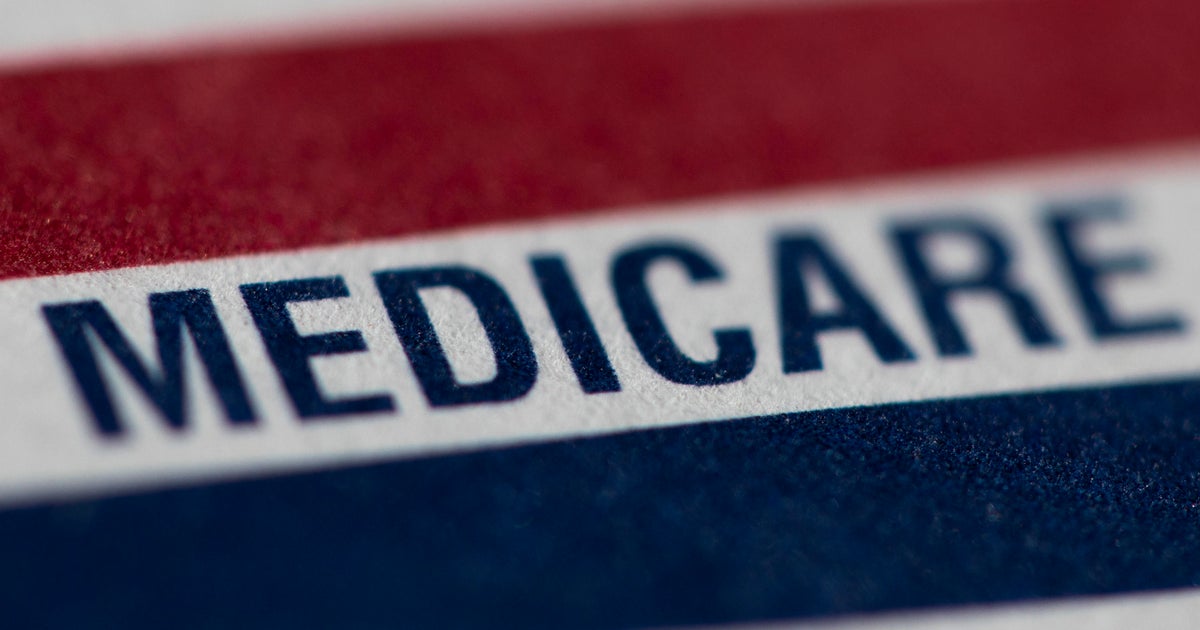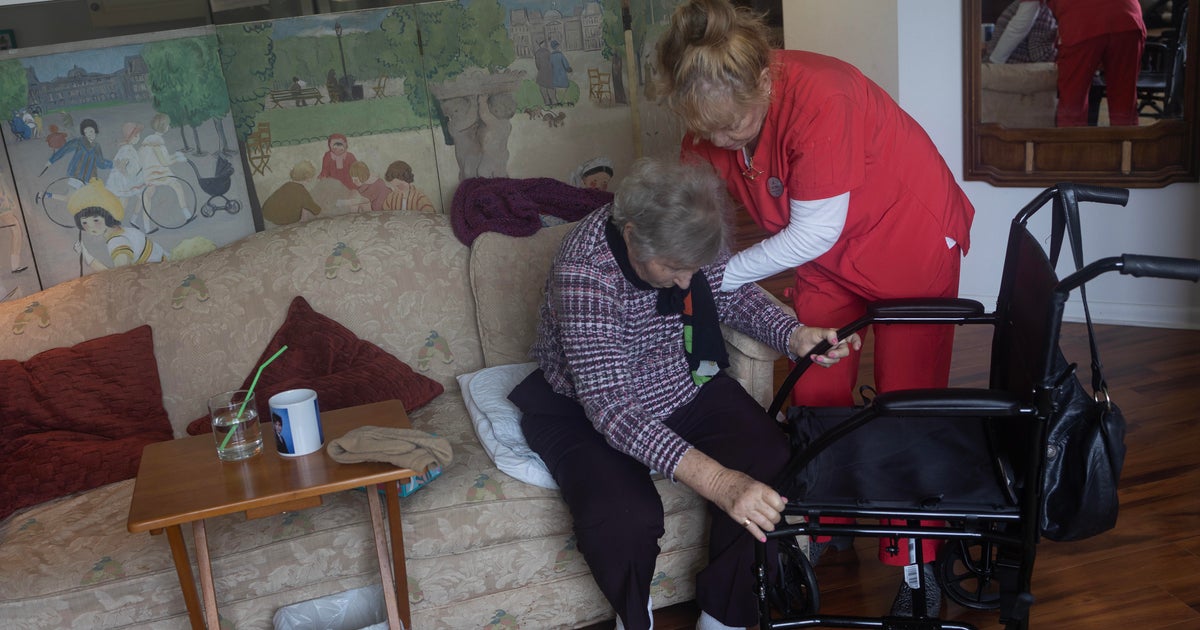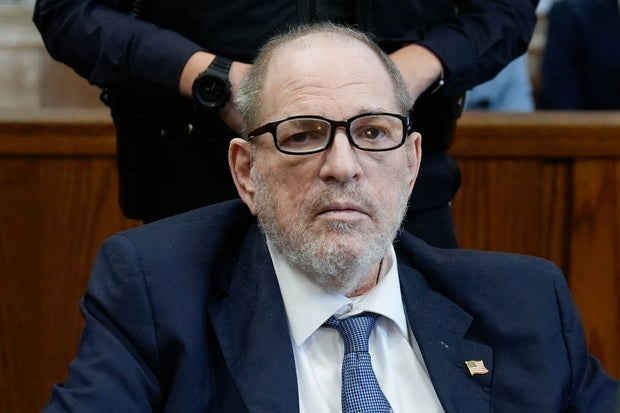CBS News
Medicare drug plans are getting better next year. Some will also cost more.

When Pam McClure learned she’d save nearly $4,000 on her prescription drugs next year, she said, “it sounded too good to be true.” She and her husband are both retired and live on a “very strict” budget in central North Dakota.
By the end of this year, she will have spent almost $6,000 for her medications, including a drug to control her diabetes.
McClure, 70, is one of about 3.2 million people with Medicare prescription drug insurance whose out-of-pocket medication costs will be capped at $2,000 in 2025 because of the Biden administration’s 2022 Inflation Reduction Act, according to an Avalere/AARP study.
“It’s wonderful — oh my gosh. We would actually be able to live,” McClure said. “I might be able to afford fresh fruit in the wintertime.”
The IRA, a climate and health care law that President Joe Biden and Vice President Kamala Harris promote on the campaign trail as one of their administration’s greatest accomplishments, radically redesigned Medicare’s drug benefit, called Part D, which serves about 53 million people 65 and older or with disabilities. The administration estimates that about 18.7 million people will save about $7.4 billion next year alone due to the cap on out-of-pocket spending and less publicized changes.
The annual enrollment period for Medicare beneficiaries to renew or switch drug coverage or to choose a Medicare Advantage plan began Oct. 15 and runs through Dec. 7. Medicare Advantage is the commercial alternative to traditional government-run Medicare and covers medical care and often prescription drugs. Medicare’s stand-alone drug plans, which cover medicines typically taken at home, are also administered by private insurance companies.
“We always encourage beneficiaries to really look at the plans and choose the best option for them,” Chiquita Brooks-LaSure, who heads the Centers for Medicare & Medicaid Services, told KFF Health News. “And this year in particular it’s important to do that because the benefit has changed so much.”
Improvements to Medicare drug coverage required by the IRA are the most sweeping changes since Congress added the benefit in 2003, but most voters don’t know about them, KFF surveys have found. And some beneficiaries may be surprised by a downside: premium increases for some plans.
CMS said Sept. 27 that nationwide the average Medicare drug plan premium fell about $1.63 a month — about 4% — from last year. “People enrolled in a Medicare Part D plan will continue to see stable premiums and will have ample choices of affordable Part D plans,” CMS said in a statement.
However, an analysis by KFF, a health information nonprofit that includes KFF Health News, found that “many insurers are increasing premiums” and that large insurers including UnitedHealthcare and Aetna also reduced the number of plans they offer.
Many Part D insurers’ initial 2025 premium proposals were even higher. To cushion the price shock, the Biden administration created what it calls a demonstration program to pay insurers $15 extra a month per beneficiary if they agreed to limit premium increases to no more than $35.
“In the absence of this demonstration, premium increases would certainly have been larger,” Juliette Cubanski, deputy director of the Program on Medicare Policy at KFF, wrote in her Oct. 3 analysis.
Nearly every Part D insurer agreed to the arrangement. Republicans have criticized it, questioning CMS’ authority to make the extra payments and calling them a political ploy in an election year. CMS officials say the government has taken similar measures when implementing other Medicare changes, including under President George W. Bush, a Republican.
In California, for example, Wellcare’s popular Value Script plan went from 40 cents a month to $17.40. The Value Script plan in New York went from $3.70 a month to $38.70, a more than tenfold hike — and precisely a $35 increase.
Cubanski identified eight plans in California that raised their premiums exactly $35 a month. KFF Health News found that premiums went up for at least 70% of drug plans offered in California, Texas, and New York and for about half of plans in Florida and Pennsylvania — the five states with the most Medicare beneficiaries.
Spokespeople for Wellcare and its parent company, Centene Corp., did not respond to requests for comment. In a statement this month, Centene’s senior vice president of clinical and specialty services, Sarah Baiocchi, said Wellcare would offer the Value Script plan with no premium in 43 states.
In addition to the $2,000 drug spending limit, the IRA caps Medicare copayments for most insulin products at no more than $35 a month and allows Medicare to negotiate prices of some of the most expensive drugs directly with pharmaceutical companies.
It will also eliminate one of the drug benefit’s most frustrating features, a gap known as the “donut hole,” which suspends coverage just as people face growing drug costs, forcing them to pay the plan’s full price for drugs out-of-pocket until they reach a spending threshold that changes from year to year.
The law also expands eligibility for “extra help” subsidies for about 17 million low-income people in Medicare drug plans and increases the amount of the subsidy. Drug companies will be required to chip in to help pay for it.
Starting Jan. 1, the redesigned drug benefit will operate more like other private insurance policies. Coverage begins after patients pay a deductible, which will be no more than $590 next year. Some plans offer a smaller or no deductible, or exclude certain drugs, usually inexpensive generics, from the deductible.
After beneficiaries spend $2,000 on deductibles and copayments, the rest of their Part D drugs are free.
That’s because the IRA raises the share of the bill picked up by insurers and pharmaceutical companies. The law also attempts to tamp down future drug price hikes by limiting increases to the consumer price inflation rate, which was 3.4% in 2023. If prices rise faster than inflation, drugmakers have to pay Medicare the difference.
“Before the redesign, Part D incentivized drug price increases,” said Gina Upchurch, a pharmacist and the executive director of Senior PharmAssist, a Durham, North Carolina, nonprofit that counsels Medicare beneficiaries. “The way it is designed now places more financial obligations on the plans and manufacturers, pressuring them to help control prices.”
Another provision of the law allows beneficiaries to pay for drugs on an installment plan, instead of having to pay a hefty bill over a short period of time. Insurers are supposed to do the math and send policyholders a monthly bill, which will be adjusted if drugs are added or dropped.
Along with big changes brought by the IRA, Medicare beneficiaries should prepare for the inevitable surprises that come when insurers revise their plans for a new year. In addition to raising premiums, insurers can drop covered drugs and eliminate pharmacies, doctors, or other services from the provider networks beneficiaries must use.
Missing the opportunity to switch plans means coverage will renew automatically, even if it costs more or no longer covers needed drugs or preferred pharmacies. Most beneficiaries are locked into Medicare drug and Advantage plans for the year unless CMS gives them a “special enrollment period.”
“We do have a system that is run through private health plans,” CMS chief Brooks-LaSure said. But she noted that beneficiaries “have the ability to change their plans.”
But many don’t take the time to compare dozens of plans that can cover different drugs at different prices from different pharmacies — even when the effort could save them money. In 2021, only 18% of Medicare Advantage drug plan enrollees and 31% of stand-alone drug plan members checked their plan’s benefits and costs against competitors’, KFF researchers found.
For free, unbiased help selecting drug coverage, contact the State Health Insurance Assistance Program at shiphelp.org or 1-877-839-2675.
KFF Health News is a national newsroom that produces in-depth journalism about health issues and is one of the core operating programs at KFF—an independent source of health policy research, polling, and journalism. Learn more about KFF.
Subscribe to KFF Health News’ free Morning Briefing.
CBS News
11 arrested after protesters storm University of Minnesota administrative building, officials say

MINNEAPOLIS — Eleven people were arrested Monday after University of Minnesota officials released an emergency alert on Monday afternoon, saying protesters stormed Morrill Hall in Minneapolis.
The building, located on Northup Mall on the East Bank campus, is home to the university’s administrative headquarters.
The alert stated protesters were “causing property damage and restricting entrance and exit from the building,” and they had advised people inside to “safely exit” the premises immediately if possible.
Monday’s protest was organized by the group UMN Students for a Democratic Society, which is calling on the university to divest from companies that support Israel — which the Board of Regents declined to do in August following weeks of pro-Palestinian demonstrations on campus.
The protesters were equipped with tents and supplies, and said they planned to stay until their demands were met. Video posted online showed chairs stacked in front of an exterior door of the building, in an apparent barricade.
Photos on the group’s Facebook page showed what appeared to be arrests being made.
“We plan to stay until they forcibly remove us,” Merlin Van Alstein, an organizer with the group, said before the arrests. “The people inside aren’t going to leave until they meet our demands or they are forced to leave.”
The group renamed the building “Halimy Hall,” in remembrance of 19-year-old Palestinian TikTok creator Medo Halimy who died in August in an apparent Israeli airstrike. The Israeli military said it was not aware of the strike that killed Halimy.
A spokesperson for the university released the following statement:
“Protesters assembled on the lawn in front of Coffman Memorial Union starting around 3 p.m. on Monday, Oct. 21, 2024. Shortly before 4 p.m., a group of these individuals quickly moved north, up the Northrop Mall, and entered Morrill Hall.
Once inside the building, protesters began spray painting, including covering lenses of all internal security cameras, breaking interior windows, and barricading the building’s entrance and exit points. The full extent of the damage is unknown. A number of staff were working in the building at the time, and several people were not able to exit, with some being unable to exit the building for an extended period of time.
To ensure the safety of U of M employees in the building who were unable to exit, and in light of property damage sustained to the building, University of Minnesota Police Department was called to the scene to address the situation. With necessary support from the Hennepin County Sheriff’s Office, UMPD entered the building at approximately 5:40 p.m. and arrested 11 people. No additional information is available at this time about the individuals arrested or the extent of damage to property.
An investigation is ongoing.”
Minnesota Hillel’s Executive Director Emily Boskof released the following statement regarding the demonstration:
“At Minnesota Hillel, our most important priority is keeping Jewish students safe — first, foremost, and always. We appreciate the administration and law enforcement holding students accountable for any violations of the code of conduct. We are in close communication with university administrators to ensure that they’re doing everything possible to provide support and keep Jewish students safe. While these incidents grab attention online and in the media, most of the time, we are focused on the pride and joy of being Jewish. For example, we’ve also been focused today on celebrating Sukkot together. Hillel’s doors are always open for all Jewish students.”
CBS News
Harvey Weinstein said to have bone marrow cancer

Disgraced Hollywood movie producer Harvey Weinstein has been diagnosed with bone marrow cancer, according to numerous outlets. NBC News was first among them.
Weinstein, 72, has chronic myeloid leukemia and is undergoing treatment behind bars in Rikers Island, the reports say, citing sources.
Chronic myeloid leukemia is a rare type of cancer of the bone marrow, the Mayo Clinic says.
His reported diagnosis is the latest in a string of health issues for the once-powerful entertainment mogul, who appeared pale and visibly frail during a brief court appearance in September.
Seth Wenig / Getty Images
He underwent emergency heart surgery last month, after which his representative said he was “out of danger at the moment.”
A statement provided to CBS News by Weinstein spokesperson Juda Engelmayer says, “Craig Rothfeld, Mr. Weinstein’s authorized legal healthcare representative in New York state, expresses “profound dismay at the speculation surrounding Mr. Weinstein’s medical condition. It is both troubling and unacceptable that such private and confidential health matters have become a subject of public discourse. Out of respect for Mr. Weinstein’s privacy, we will offer no further comment.”
Weinstein is serving a 16-year prison sentence after being convicted on rape charges in California.
He was also convicted in New York in 2020 of the rape and sexual assault of an actress and of forcibly performing oral sex on a production assistant. Weinstein was sentenced to 23 years in prison in that case.
However, a New York appeals court overturned the verdict in April, ruling that the trial judge had allowed testimony in error from accusers who weren’t directly involved with the charges Weinstein was facing.
A retrial in the case had been slated for November, though prosecutors have deemed that “unrealistic.”
Allegations against Weinstein helped launch the #MeToo movement in 2017, a watershed moment for women fighting sexual misconduct.
More than 80 women have accused him of harassment, sexual assault or rape, including prominent actors Angelina Jolie, Gwyneth Paltrow and Ashley Judd.
Weinstein has claimed any sexual relations in question were consensual.
In 1979, Weinstein and his brother Bob co-founded prominent Hollywood studio Miramax Films.
Their hits included 1994’s “Pulp Fiction” and 1998’s “Shakespeare in Love,” for which Weinstein shared a best picture Oscar.
CBS News
10/21: CBS Evening News – CBS News

Watch CBS News
Be the first to know
Get browser notifications for breaking news, live events, and exclusive reporting.










